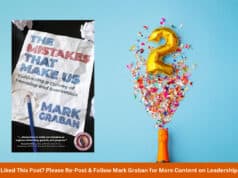Last night I attended a panel discussion hosted by the Detroit Economic Club's Junior Executive Committee. The focus of the panel was in-vehicle technology and one of the major discussion points was around the challenge vehicle manufacturers' face in trying to keep pace with the development cycle of the consumer electronics industry. Even though the best of automakers have been able to reduce their product development cycles to somewhere between 12 & 14 months, this is still a snail's pace compared with cycles for computers, PDA's, music players and other electronic devices.
The demand for in-vehicle technology such as On-Star, navigation systems and entertainment is certainly on the rise. Incorporating ‘built-in' devices is not only expensive, but makes it much more difficult for manufacturers to keep the technology they use current.
Panelist Dr. Robert Schumacher, advanced product development and business strategy director at Delphi responded to this topic by discussing the need for the development and use of open standards. By using standard interfaces such as Bluetooth, USB or even standard stereo jack inputs automakers can make it possible for vehicles to work with gadgets consumers already own rather than building in technology that can't be upgraded or changed. For example, rather than having a built in phone that uses the speakers in the vehicle and is operated through controls on the steering wheel, a Bluetooth connection between the vehicle and a driver's cell phone would enable the same functionality without the need for a built in phone and additional network service.
While it wasn't discussed from the lean perspective, open standards represent a huge enabler for the elimination of waste! Investment and time required to build technology into vehicles would be drastically reduced as OEM's would only need to worry about the interfaces rather than the technology itself. Common systems would also be easily deployed across vehicle lines and applications. The best news here is that there are many reliable, thoroughly tested interfaces already available – no need to develop any new technology.
Also with this model, consumers would be able to choose which technologies they want to bring into the vehicle, and these technologies can be upgraded or changed as portable devices and gadgets are improved much more economically, and at the discretion of the consumer. Consumers will also not have to pay for the same technology twice – I've already got a phone; why should I pay for another one to use with the car?
The article linked here discusses vehicle personalization as well as in-vehicle technology and includes additional references to last night's panel discussion.
Please scroll down (or click) to post a comment. Connect with me on LinkedIn.
Let’s work together to build a culture of continuous improvement and psychological safety. If you're a leader looking to create lasting change—not just projects—I help organizations:
- Engage people at all levels in sustainable improvement
- Shift from fear of mistakes to learning from them
- Apply Lean thinking in practical, people-centered ways
Interested in coaching or a keynote talk? Let’s start a conversation.









